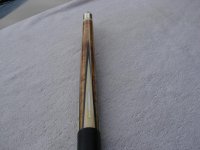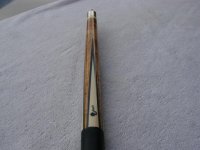You have to admit that there is a sliding scale in judging cheap labour and sweatshop like conditions.
Yes i know China is a big country, yes i know about living costs in China - does that validate companies to practically "own" their workers, wich is the case many places.
Do the big corporations lift these individuals out of powerty? yes to some degree they do. But you are equating peasants who have lived a certain lifestyle for generations to young aspiring Chinese youth who has the western consumer lifestyle as a dream.
The companies running the megafactories speculate in this desire.
I`m in no way religious, but apply the golden rule to Chinese factory workers and I\m pretty sure both you and I would not liked to be treated like that.
What company practically owns their workers? I have not been in one single factory out of dozens where people were not free to leave. Foxconn? I guarantee you that every Foxconn worker since the inception of the company in China has been free to walk out of the factory gate at any time.
Golden Rule?
Ok, the typical Chinese factory worker is provided with housing, breakfast, lunch and dinner, gets all holidays off or paid overtime plus extra if they work on the holiday, has their health insurance paid for. The company has to pay for social security and several other taxes on behalf of the employee. I can tell you for a fact that many companies in the USA do NOT treat their employees nearly as well as the average Chinese factory does theirs. Especially now when Chinese factories must compete for labor.
Again you are generalizing without understanding the average. Of course there are crappy employers here. And there are fantastic ones and a whole bunch in between on all points on the spectrum.
And I don't know if you have looked at China lately but their middle class is larger than the population of the United States. The children of factory workers are graduating college and taking jobs in professions that pay better than their parents ever earned.
Before I came to China I also had a lot of misconceptions about what life was like here. I had the same stereotypes in my mind and thought I would see just flat out horrible conditions. That's not what I found. Is everything up to OSHA standards? Of course not. But guess what China has stricter laws than the USA does but they can't enforce those laws due to the sheer numbers of factories and the guangxie corruption. You know like bribing an inspector for a favorable report. Never heard of that happening in the USA have you? ;-)
You know what polices factories more than the government? Western buyers who are responsible to their consumers. Any serious factory here has to comply with strict international standards and is inspected yearly by the bodies that issue those certifications. Some folks on this forum can tell you about them.
Shining a spotlight has helped to make things better. That plus the demands of the workers themselves.
There is a lot of bad things happening in China. In a country with 1.4 billion people I would be very surprised if that wasn't the case. But you know full well that people are oppressed and suppressed in the USA every day. Every day someone is fired for being sick, sexually harassed at work, berated and insulted, treated like crap, forced to work in unsafe conditions, asked to lie on behalf of the company. discriminated against for being a certain color or race or gender, cheated out their pay, works with no health insurance, etc...
I am positive that I can take you to 100 random factories and your opinion will change 180 degrees when you not only see the working conditions but also meet the people doing the work. Then I will take you into the city and show you all the people working in offices and professions.
Once you see and experience life on the ground here you will never use the word slave to describe a Chinese person again. My wife is a university graduate with a bachelors in education. Is she now or has she ever been anyone's slave?
One of the richest women in China, who was just interviewed on 60 minutes, worked in a Hong Kong factory, probably a real sweatshop. Then she saved her money and went to London and got into Cambridge and worked in finance before returning to China. In China she married a struggling developer and together they have built a sizable portion of Shanghai and Beijing.
If it were not for foreign investment into China it's unlikely that she would have ever had those avenues open to her. She might very well still be working in a factory.
Don't forget that America is partially built on cheap immigrant labor who worked in the sweatshops providing cheap goods to Europe. Before we condemn anyone else or try to take their ladders away let's remember our own history,




